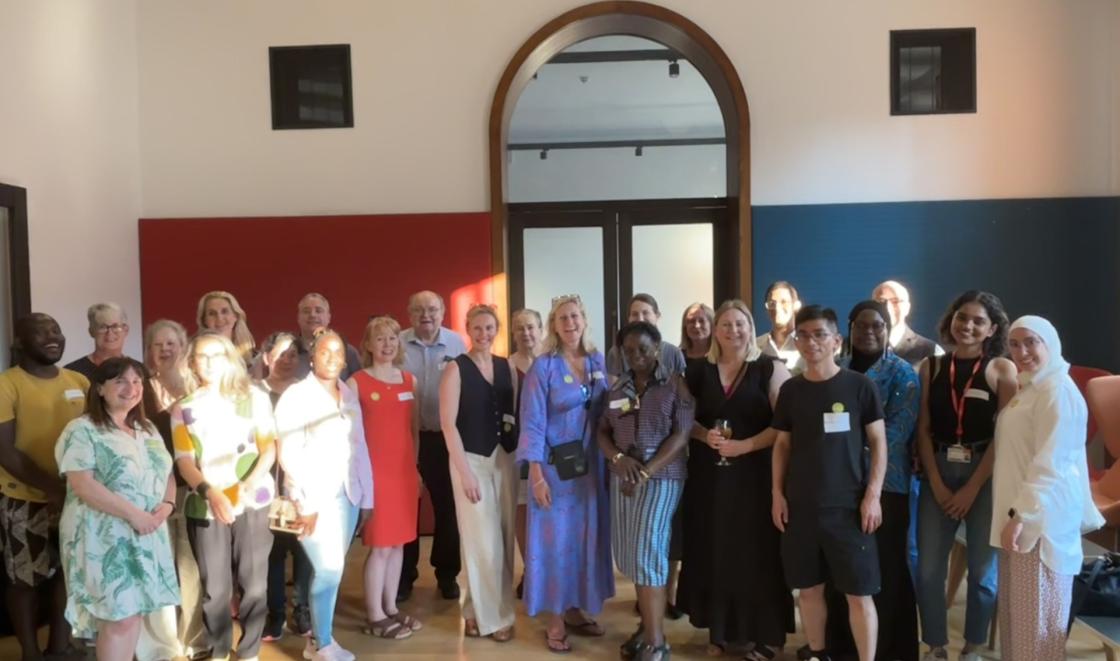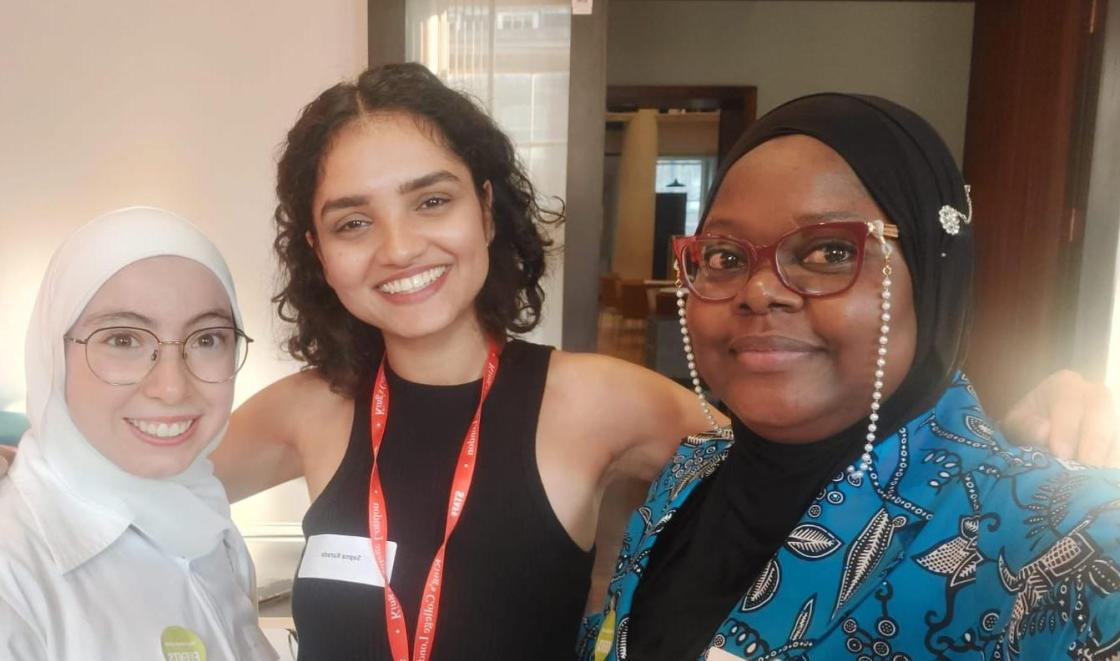Photo: Sapna Kurade, second from right at the celebration event at the end of the Leadership Academy.
Core learnings and practical applications
The Academy’s lectures introduced me to various aspects of research leadership, each greatly relevant to my work. Fifteen lectures were offered, examples included:
Clinical academia in the NHS
Dr Gita Ramdharry’s highlighted the bridge between clinical practice and research, underscoring the role of evidence-based interventions in improving patient outcomes - a principle I integrate into my public health work.
International partnership building
Professor Richard Harding’s discussed strategic global health partnerships, particularly in the context of palliative care. His insights on cross-border collaborations reinforced my appreciation for international partnership-building, which is vital in advancing inclusive research.
Forming and running research collaborations and consortia
Professor Sir Graham Thornicroft shared effective strategies for establishing and sustaining research collaborations. His emphasis on the “best team” approach and consortium longevity provided practical guidance for interdisciplinary partnerships, a key focus in my current roles.
Contracting and project management
Irrum Afzal detailed the legal and financial responsibilities in research projects, focusing on contract types and project monitoring. These skills are instrumental in managing collaborative projects within the NHS, where clear agreements and accountability are essential.
Costing and managing grants
Jane Haycocks explained budgeting and grant applications, covering essential aspects like Full Economic Costing and funder guidelines. This knowledge helps me understand the importance of strong and compliant grant proposals to sustain public health projects.
Creating research impact with Theory of Change
Professor Fiona Jones introduced the Theory of Change as a framework to link project activities to long-term outcomes. This model supports creating measurable impact within projects, ensuring that research directly benefits the communities involved.
Diverse and inclusive involvement
Savitri Hensman and Professor Tushna Vandrevala emphasised the need for equality, diversity, and inclusion (EDI) in research, a central focus in my work in the Research Support Network. Here, I work to build trust and inclusivity within underserved communities, fostering a research culture that truly reflects diverse voices.
Insights gained through mentorship
One of the most valuable aspects of the Academy was the opportunity to learn from distinguished leaders, whose guidance has had a lasting impact on my journey. At the Academy we received guidance on how to approach a mentor and I was fortunate enough to secure more than one:
- Professor Kevin Fenton, President, Faculty of Public Health Professor Fenton’s advice on aligning personal values with professional goals and embracing humility was deeply inspiring. His encouragement to seek diverse experiences, to bridge theory with practice has helped me refine my public health leadership approach.
- Professor Bola Owolabi, Director, National Healthcare Inequalities Improvement Programme, NHSE Observing Professor Owolabi’s leadership during a NICE meeting reinforced the power of authentic leadership. Her encouragement to identify gaps and pursue opportunities that energize me was a timely reminder to stay grounded in work that aligns with my values.
- Professor Dr Durka Dougall, Acting Deputy Chair, Kingston Hospital NHS Foundation Trust and Chief Executive, The Centre for Population Health Professor Dougall’s mentorship was incredibly supportive, especially in helping me acknowledge the challenges of immigrating to a new country and transitioning careers and how these experiences shape one’s professional identity. She encouraged me to confront imposter syndrome, celebrate my achievements and recognise the unique perspectives I bring to my work.
Huge thanks to all of my mentors including Cynthia Bullock, Deputy Director, Healthy Ageing Challenge, Innovate UK and Andrew Eyres, Corporate Director, Integrated Health and Care, Lambeth Council, SE London ICB for their guidance and time. People are often more willing to help than we imagine, and even the seemingly “unreachable” can be within reach when we show enthusiasm and proactiveness.

